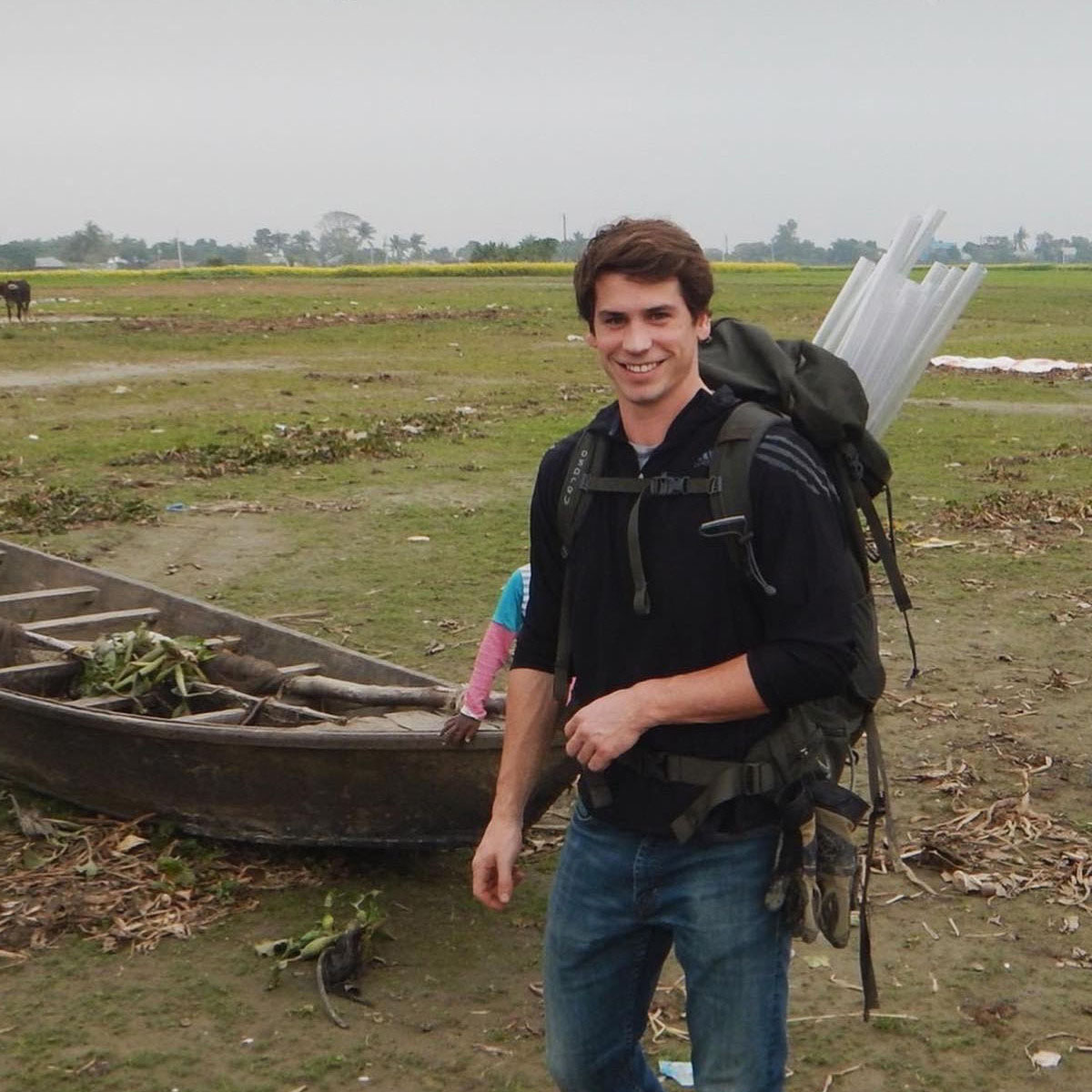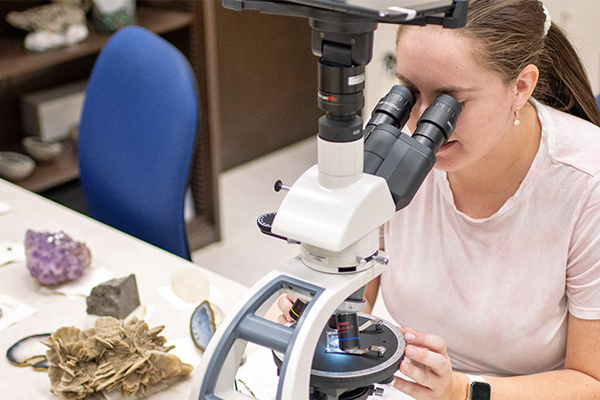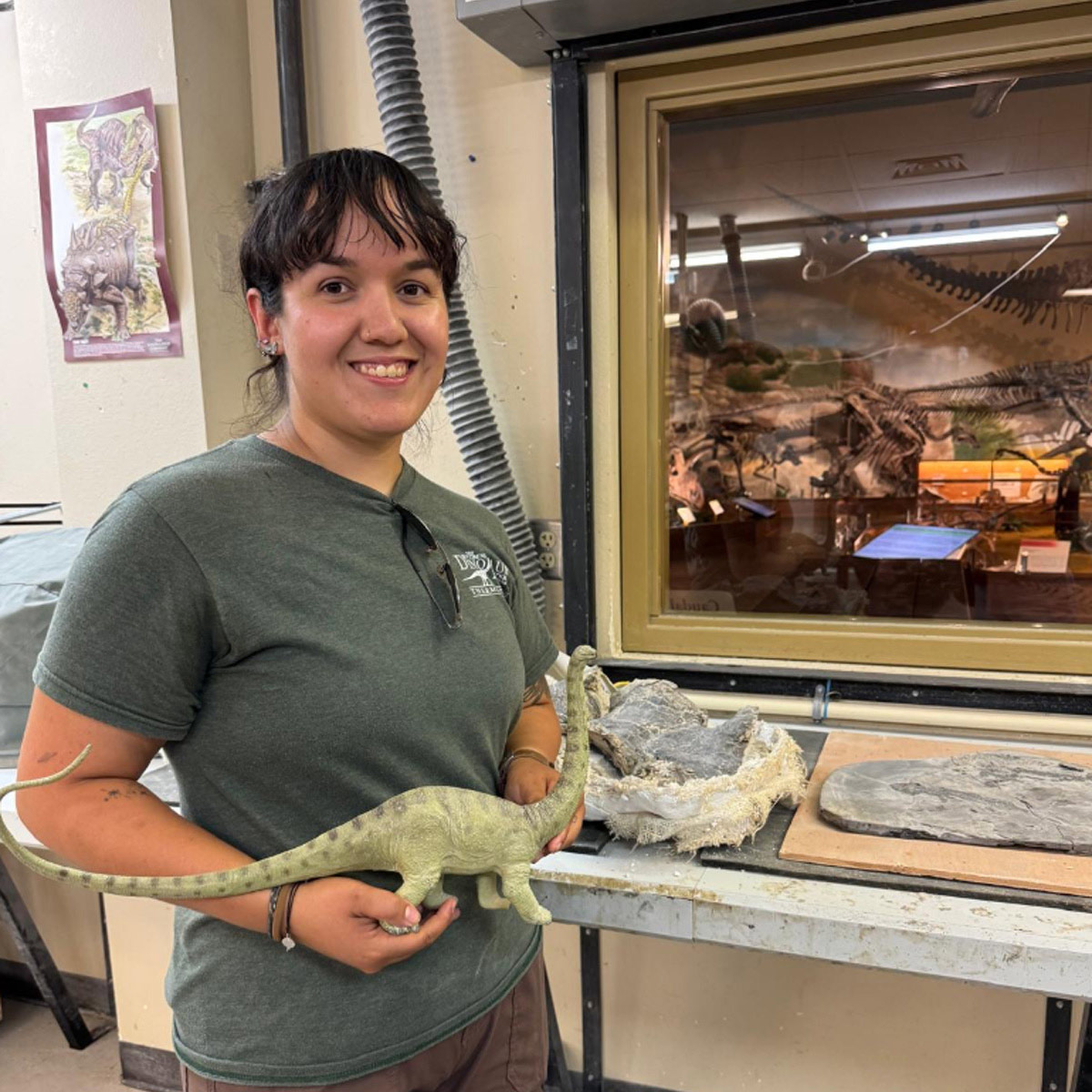Posted on July 14, 2020 by College of Sciences

Tom Varner, Environmental Science and Engineering Ph.D. Student
By Lauren Moriarty
When Tom Varner started his trip to Spain in 2015, he was an undergraduate student at the University of Mississippi who intended on becoming a pharmacist. But when he left, he knew he wanted to make a major change. "While hiking in Spain, I realized that my passions for science and the natural environment could be applied through the study of geology," he says. Tom changed his major to geology when he returned to school.
The more he learned about geology, the more passionate he became. "Geology is a fascinating field involving the study of some of society's most pressing issues," he says. "As the human population grows there is an increased strain on our relationship with the natural environment. Problems such as climate change, energy, mineral resources, and water resources are all addressed through the study of geology. The application of the study of geology towards real world issues provides a fulfilling line of work."
After completing his undergraduate degree, Tom wanted to continue his education. "I wanted to do research in a field of geology that was societally relevant and could improve people's livelihoods," he says. "I found my place here at UTSA conducting research under Dr. Datta, studying the transportation of arsenic in the drinking water aquifers of Bangladesh."
Tom was recently awarded a Graduate Research Grant from the Geological Society of America (GSA). The grant will assist the department's existing National Science Foundation-funded research, which examines the mechanisms that control the release and sequestration of arsenic along the Meghna River in Bangladesh. Long-term exposure to arsenic, which is toxic when ingested, may lead to cancer, epigenetic defects, vascular disease and other health ailments. "Millions of people in Bangladesh are afflicted with arsenic contaminated drinking water derived from the groundwater," Tom says. "Surface waters have become contaminated with pathogens due to dense populations and lack of sanitation practices. With no safe alternatives for drinking water, this research will further the understanding of the processes controlling the fate and transport of arsenic, which is imperative to providing possible solutions."
The presence of arsenic in groundwater has been linked to high concentrations of iron oxides in the sediments. "These iron oxides can sequester dissolved arsenic, and consequentially release the arsenic upon dissolution of the iron oxide," Tom explains. "Zones of high iron concentrations along the riverbank that control the transportation of the arsenic have been termed Permeable Natural Reactive Barriers (PNRB). This study will investigate the chemical interaction between the sediment and the water under dynamic river conditions to define the occurrence and formation of a PNRB. Understanding the processes that are responsible for high arsenic concentrations in the drinking waters of Bangladesh will provide knowledge to be used for the adequate protection and management of these water resources for the people of Bangladesh."
Tom says that the GSA grant is confirmation that his research has a societal and academic significance outside of the laboratory. "This award was an honor to receive, but it represents a promise to adequately complete the study to benefit the academic community and those who suffer from inadequate drinking water," he says. After completing the Ph.D. program, Tom plans to pursue a career involving the management and protection of water resources. "Water is required to sustain life and is a basic human right," he says. "I would love to be in a position where I would be able to work towards providing clean and reliable drinking water for afflicted communities."

Explore the EPS Department!
With research centers such as the Center for Advanced Measurement in Extreme Environments and the Institute for Water Research, Sustainability and Policy, students have access to diverse research opportunities to foster their education.
Recent EPS Spotlights
View More Spotlights



